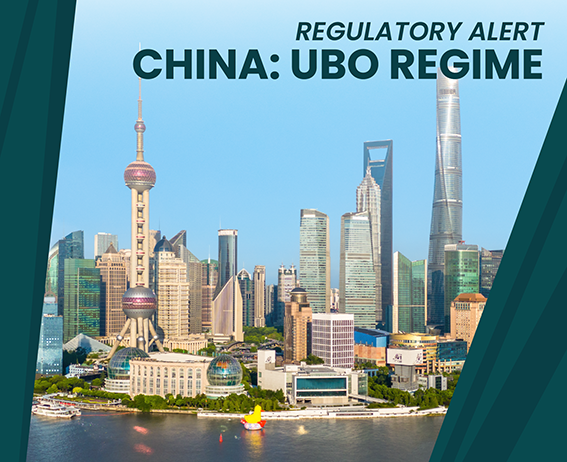Starting 1 November 2025, entities operating in China will be mandated to disclose information regarding their ultimate beneficial owners (UBOs) through the local Administration for Market Regulation’s online portal.
- Odyssey

This requirement comes in the wake of the Administrative Measures on Beneficial Owners Information, which were promulgated in April 2024 and took effect on November 1, 2024. These measures constitute a component of China’s broader initiative aimed at improving corporate transparency, enhancing market oversight, and combating illicit activities, including money laundering and terrorist financing.
The obligation to submit UBO information encompasses all forms of entities, including companies, partnership enterprises, branches of foreign corporations, and other legal entities designated by the People’s Bank of China (PBOC) and the State Administration for Market Regulation (SAMR). Entities established on or after November 1, 2024, are required to submit UBO details at the time of incorporation. Companies incorporated before this date benefit from a one-year grace period for compliance, with a final deadline established for November 1, 2025.
The newly introduced regulations define a UBO as any natural person who directly or indirectly holds a minimum of 25% of a company’s share capital or voting rights, possesses the authority to appoint or remove key decision-makers such as the entity’s manager or most of its board, or significantly influences the entity’s decisions or operations. This definition encompasses individuals who serve as legal representatives or hold positions on the board. Entities are obliged to evaluate all three criteria and provide information on all individuals who fulfil the UBO definition.
Nonetheless, a specific exemption is available for certain low-risk entities. If an entity maintains a registered capital of RMB 10 million or less (or its equivalent in foreign currency), all shareholders or partners are natural persons, and no other individual exercises actual control or derives benefits from the entity, detailed UBO information submission is not required. In such instances, these entities may submit a self-declaration through the online system instead of a comprehensive filing.
The filing process is integrated within the AMR’s online registration system, typically occurring during the incorporation phase. Should the online system be temporarily unavailable, a manual filing may be submitted in person; however, an online submission must be conducted within 30 days of establishment. Additionally, any alterations to the filed UBO information or changes affecting an entity’s exemption status must also be reported within a 30-day timeframe.
Failure to adhere to these filing requirements may result in regulatory actions, including orders to rectify deficiencies within a specified period and potential monetary penalties. Furthermore, entities that do not comply may encounter difficulties when executing other registrations, filings, or administrative processes with SAMR.


